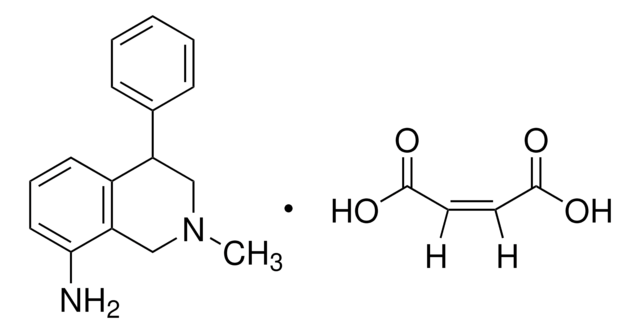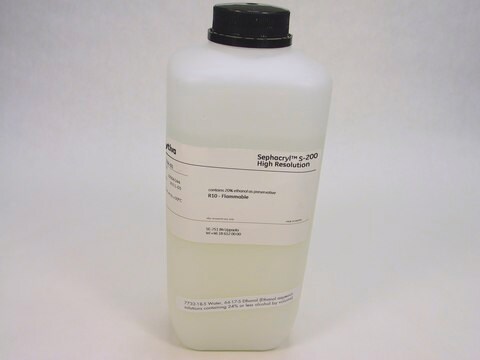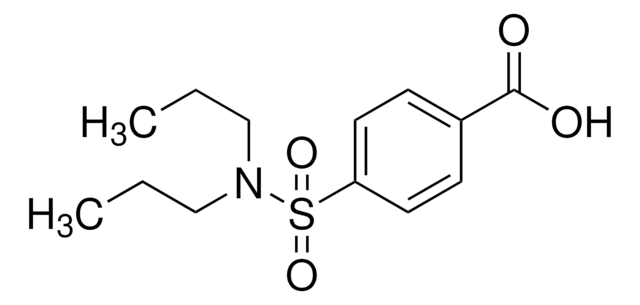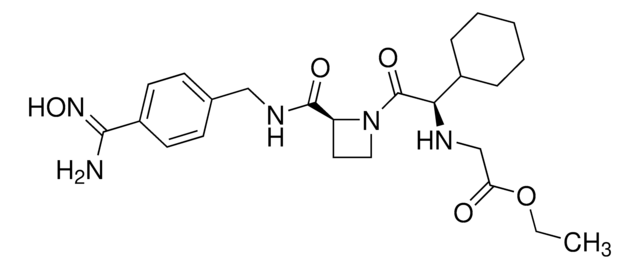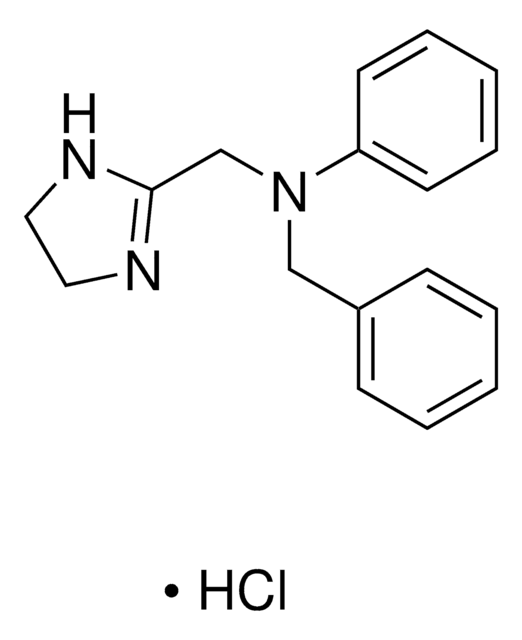SML0846
Anagrelide hydrochloride
≥98% (HPLC)
Synonyme(s) :
6,7-Dichloro-1,5-dihydro-imidazo[2,1-b]quinazolin-2(3H)-one hydrochloride
About This Item
Produits recommandés
Essai
≥98% (HPLC)
Forme
powder
Conditions de stockage
desiccated
Couleur
white to beige
Solubilité
DMSO: 1 mg/mL, clear (warmed)
Température de stockage
2-8°C
InChI
1S/C10H7Cl2N3O.ClH/c11-6-1-2-7-5(9(6)12)3-15-4-8(16)14-10(15)13-7;/h1-2H,3-4H2,(H,13,14,16);1H
Clé InChI
TVWRQCIPWUCNMI-UHFFFAOYSA-N
Description générale
Fab fragments from polyclonal anti-fluorescein antibodies, conjugated to alkaline phosphatase.
After immunization with fluorescein, the sheep IgG was purified by ion exchange chromatography and the specific IgG was isolated by immunosorption. The Fab fragments obtained by papain digestion were purified by gel filtration, conjugated with alkaline phosphatase, and stabilized in 50 mM triethanolamine buffer, 3 M NaCl, 1 mM MgCl2, 0.1 mM ZnCl2, 1% bovine serum albumin (w/v), pH 7.6.
Clone: polyclonal
Ig class: sheep IgG, Fab fragments
Actions biochimiques/physiologiques
Caractéristiques et avantages
Mention d'avertissement
Warning
Mentions de danger
Conseils de prudence
Classification des risques
Aquatic Chronic 4 - Carc. 2 - Repr. 2
Code de la classe de stockage
11 - Combustible Solids
Classe de danger pour l'eau (WGK)
WGK 3
Point d'éclair (°F)
Not applicable
Point d'éclair (°C)
Not applicable
Faites votre choix parmi les versions les plus récentes :
Certificats d'analyse (COA)
Vous ne trouvez pas la bonne version ?
Si vous avez besoin d'une version particulière, vous pouvez rechercher un certificat spécifique par le numéro de lot.
Déjà en possession de ce produit ?
Retrouvez la documentation relative aux produits que vous avez récemment achetés dans la Bibliothèque de documents.
Articles
Cyclic nucleotide phosphodiesterases (PDEs) catalyze the hydrolysis of cAMP and/or cGMP. There are 11 different mammalian PDE families.
Contenu apparenté
Cyclic nucleotides, including cyclic AMP (cAMP), cyclic GMP (cGMP) and cyclic ADP-ribose, have been extensively studied as second messengers of intracellular events initiated by activation of GPCRs. cAMP modifies cell function in all eukaryotic cells, principally through the activation of cAMP-dependent protein kinase (PKA), but also through cAMP-gated ion channels and guanine nucleotide exchange factors directly activated by cAMP.
Notre équipe de scientifiques dispose d'une expérience dans tous les secteurs de la recherche, notamment en sciences de la vie, science des matériaux, synthèse chimique, chromatographie, analyse et dans de nombreux autres domaines..
Contacter notre Service technique



